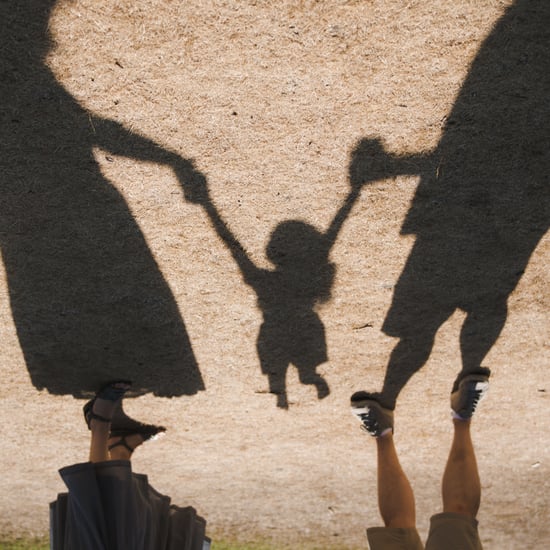What Is Helicopter Parenting?
Is Helicopter Parenting That Bad? Experts Break Down the Benefits and Drawbacks

Nobody outside of select Instagram influencers ever claimed that parenting is easy, and every family has to find their own way. Whether you're about to be a parent for the first time or your child is transitioning out of the newborn phase, it makes sense to try to figure out the parenting style that's right for you. Helicopter parenting is a common choice, although it's got plenty of criticism over the past few years.
Odds are high you've at least heard of helicopter parenting as a child-rearing approach before, but you may be fuzzy on the details. Here's what helicopter parenting involves, plus the perks and drawbacks of using this method for your family.
What Is Helicopter Parenting?
Helicopter parenting is a form of child-rearing where parents are really close to their kids. "Helicopter parenting is a style of parenting characterised by excessive involvement and overprotection of children," says Alisa Ruby Bash, PsyD, a licensed marriage and family therapist. "Parents who engage in helicopter parenting tend to closely monitor and control their child's activities, often hovering over them like a helicopter."
Helicopter parents are "very child-focussed" and tend to do a lot of things for their kid, says Robert Keder, MD, a pediatrician who specialises in developmental behaviour. Helicopter parents are usually "well-intentioned and driven by a desire to ensure the child's success and safety," Dr. Bash says.
What Does Helicopter Parenting Look Like?
Helicopter parenting can look slightly different for every family. However, experts say there are a few key signs of a helicopter parent:
- Over-involvement: "Helicopter parents tend to be highly involved in their child's daily life, from schoolwork and extracurricular activities to social relationships," Dr. Bash says. "They may micromanage their child's schedule and choices."
- Constant supervision: "Helicopter parents may closely monitor their child's online activities, friendships, and whereabouts," Dr. Bash says. "When children are little, they may hover over them in the playground to protect them from falling or getting hurt." Helicopter parents may even interject during playtime to tell their child what to do, Dr. Keder says. As kids get older, helicopter parents may even go with their child to social events or school activities, Dr. Bash explains.
- Overprotectiveness: Helicopter parents tend to shield their kids from disappointment, failure, or adversity, attempting to prevent them from facing challenges or making mistakes, Dr. Bash says.
- Decision-making control: "Helicopter parents may make most decisions for their child, from selecting their extracurricular activities to choosing their friends or even their career path," Dr. Bash says.
The Pros and Cons of Helicopter Parenting
As with everything, there are benefits and drawbacks of going the helicopter parenting route. With helicopter parenting, "parents have the comfort of knowing that things are done, and they are done their way," says Gina Song, MD, a pediatrician. "It's convenient at times and even easier and less risky than allowing kids to be independent."
Kids who are raised by helicopter parents "may be comfortable without taking chances and having their parents do things for them," Dr. Song says. Helicopter parents often form a close, positive relationship with their child, too, Dr. Keder says.
But helicopter parenting is far from perfect. "Children raised by helicopter parents may struggle with decision-making, problem-solving, and taking initiative due to their limited opportunities for independence," Dr. Bash says. These children can also develop anxiety and fear of failure, since they're not used to dealing with challenges on their own, she says. "You want to give kids some opportunity to try new things, while we're secretly there with a safety net," Dr. Keder explains.
Dr. Bash agrees. "Balancing involvement and independence is essential in parenting," she says. "While it's important to provide support and guidance, parents should also allow their children the freedom to make choices, learn from mistakes, and develop self-reliance."
With helicopter parenting, "it can look like the parent is constantly cleaning up after their child," physically and emotionally, Dr. Keder says. Helicopter parents will often pick up their child's toys for them, instead of teaching them to do it. "If you clean up for them all the time, they're never going to learn to clean up after themselves," Dr. Keder says.
"There are even helicopter parents of college students who will call and ask the professor why they did this and that," Dr. Keder says. "College students should be asking those questions themselves."
Helicopter parenting certainly isn't perfect, although it has a few benefits. When it comes to choosing a way to parent, Dr. Keder recommends taking elements you like from different parenting styles. He says, "Overall, the goal is to think about how we're helping our child become safe and secure over time, while fostering their development."








